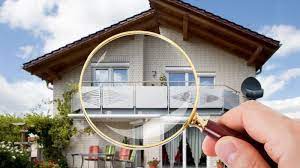1. Introduction: Buying a Home in Vancouver’s Competitive Market
Buying a home in Vancouver is a major milestone — and one of the most significant financial decisions most Canadians will ever make. Vancouver’s real estate market is known for its beauty, high property values, and competitive demand. But beneath the surface, even the most stunning homes can hide serious structural issues.
That’s why a home inspection in Vancouver isn’t just a recommendation — it’s a must-have step before you sign that purchase agreement. A professional home inspection protects you from costly surprises and gives you a clear picture of what you’re investing in.
Whether you’re a first-time buyer, an experienced investor, or a home seller, understanding how home inspections work in Canada — and especially in British Columbia’s unique housing environment — can save you time, stress, and thousands of dollars.
2. What Is a Home Inspection?
A home inspection is a detailed evaluation of a property’s physical condition, typically conducted by a certified professional known as a home inspector. The goal is to identify existing or potential issues that could affect the home’s safety, structure, or value.
During a standard home inspection in Vancouver, inspectors examine everything from the foundation to the roof — checking electrical systems, plumbing, insulation, HVAC systems, and more. They then provide a comprehensive report detailing any problems, risks, or maintenance recommendations.
Purpose of a Home Inspection:
- To identify hidden issues before purchasing
- To estimate future repair costs
- To ensure the home meets safety and building standards
- To give buyers leverage in negotiations
3. Why Home Inspection in Vancouver Is So Important
Vancouver’s climate and geography make home inspections especially crucial. The city’s wet coastal environment can lead to moisture-related problems that might not be visible during a casual walkthrough.
Common Vancouver-specific concerns include:
- Water damage and mold: Frequent rainfall can cause leaks, basement dampness, or rot.
- Roof issues: Heavy rains and moss buildup can damage shingles.
- Foundation cracks: Common in older or poorly drained areas.
- Plumbing concerns: Older homes may still have galvanized pipes.
- Insulation and ventilation problems: Energy inefficiency can lead to higher heating costs.
A proper inspection ensures that you’re not buying into long-term problems disguised by a fresh coat of paint or a recent renovation.
4. What Does a Vancouver Home Inspection Include?
A professional home inspection in Vancouver typically covers the following key components:
Exterior Inspection
- Roof condition and drainage
- Gutters and downspouts
- Siding, paint, and exterior materials
- Decks, porches, and balconies
- Driveways, retaining walls, and grading
Interior Inspection
- Foundation and structural integrity
- Electrical systems and wiring
- Plumbing systems (pipes, fixtures, and drainage)
- Heating and cooling (HVAC systems)
- Windows, insulation, and ventilation
- Walls, ceilings, and flooring
- Attics, crawl spaces, and basements
After the inspection, the inspector provides a detailed written report, often with photos, outlining issues, their severity, and recommendations for repairs or further evaluation.
5. How Much Does a Home Inspection Cost in Vancouver?
Home inspection costs in Vancouver generally range between $400 and $800, depending on factors such as:
- Property size and type (condo, townhouse, detached home)
- Age and complexity of the structure
- Inspector’s experience and certification
- Additional services (e.g., radon testing, thermal imaging, or mold inspection)
For luxury or heritage properties, inspections may cost more due to additional detail and time required.
While it may seem like an added expense, skipping a home inspection could cost you tens of thousands of dollars later in unexpected repairs — making it one of the smartest investments you can make.
6. When Should You Schedule a Home Inspection?
The best time to schedule a home inspection is immediately after your offer is accepted, but before finalizing the purchase. Most real estate contracts in Canada include a “subject to inspection” clause, giving you time to complete the inspection and review the results before closing the deal.
If the report reveals significant problems, you can:
- Negotiate repairs or price adjustments
- Request the seller to fix certain issues
- Withdraw the offer if major safety or structural issues are found
This step ensures you’re making an informed decision backed by professional insight.
7. How to Choose a Reliable Home Inspector in Vancouver
Choosing the right home inspector is key to getting accurate, unbiased results. Here’s what to look for:
1. Certification and Licensing
In British Columbia, home inspectors must be licensed through Consumer Protection BC. Always verify your inspector’s credentials before hiring.
2. Experience
Look for inspectors with proven experience in Vancouver’s housing market. Older homes, coastal conditions, and BC building codes require specialized knowledge.
3. Sample Reports
Ask to see a sample inspection report. It should be detailed, easy to understand, and include photos.
4. Reviews and Recommendations
Read Google reviews or ask your real estate agent for referrals to reputable inspectors.
5. Insurance
Ensure the inspector carries errors and omissions insurance, which protects both parties if something important is missed.
8. Common Issues Found During Vancouver Home Inspections
In Vancouver, inspectors often uncover recurring problems due to climate and construction patterns. Common findings include:
- Moisture penetration in basements or crawl spaces
- Roof wear and leaks from heavy rainfall
- Outdated electrical panels and wiring
- Poor ventilation leading to condensation or mold
- Drainage issues from improper grading
- Cracked foundations due to soil movement
- Aging plumbing systems
While many of these problems are fixable, knowing about them early helps you plan repairs and negotiate better.
9. Should Sellers Get a Pre-Listing Inspection?
Absolutely. While most home inspections are done by buyers, pre-listing inspections are increasingly popular among Vancouver sellers.
By identifying issues before listing your property, you can:
- Fix problems proactively
- Avoid last-minute deal breakers
- Justify your asking price with transparency
- Build trust with potential buyers
A pre-inspection can also speed up the sale process since it reduces uncertainty for both sides.
10. New Homes Need Inspections Too
It’s a common misconception that newly built homes don’t need inspection. Even brand-new properties in Vancouver can have hidden issues such as:
- Poor insulation or airflow
- Plumbing misalignments
- Minor foundation settling
- Electrical faults or loose connections
- Incomplete finishing work
Hiring a certified home inspector before moving in ensures the builder meets BC Building Code standards and delivers a quality product.
11. Understanding Your Inspection Report
After the inspection, you’ll receive a comprehensive report summarizing findings and recommendations.
Here’s what to expect:
- A summary of key issues needing attention
- High-quality photos of problem areas
- Priority levels (e.g., safety, repair soon, monitor)
- Maintenance advice for long-term care
Take the time to read it thoroughly and discuss any questions with your inspector or real estate agent.
12. Legal Requirements and Standards in BC
In British Columbia, home inspectors must:
- Hold a valid license from Consumer Protection BC
- Follow the Home Inspectors Licensing Regulation
- Abide by a Code of Ethics and Standard of Practice
This ensures inspections meet a consistent, professional standard — giving both buyers and sellers confidence in the results.
13. How Weather Affects Home Inspections in Vancouver
Vancouver’s rainy season can sometimes impact the inspection process. While rain can reveal leaks or drainage problems, it may also limit visibility for roof or exterior assessments.
Professional inspectors understand these challenges and may suggest a follow-up visit during dry weather if certain areas can’t be accessed safely.
14. Negotiating After the Inspection
Once the inspection is complete, the findings can be used as a negotiation tool.
If serious issues are discovered, you might:
- Ask the seller to handle specific repairs
- Request a reduction in sale price
- Or walk away if the property poses too many risks
In a hot market like Vancouver, negotiations can be tricky, but inspection data gives you factual leverage.
15. Final Walkthrough Before Closing
After repairs (if any) are completed, it’s wise to do a final walkthrough before closing. Confirm that:
- Promised repairs are done
- Appliances and systems are functioning
- No new damage has occurred
This ensures a smooth handover and peace of mind as you finalize your purchase.
16. The Role of Technology in Modern Home Inspections
Today’s inspectors use advanced tools like:
- Thermal imaging cameras to detect hidden moisture
- Drones for roof inspections
- Moisture meters to detect leaks behind walls
- Infrared scanners to spot insulation gaps
Technology makes inspections more precise, efficient, and detailed — something buyers in Vancouver’s premium market truly value.
17. Tips for Buyers Before the Inspection
- Attend the inspection if possible — it’s a valuable learning experience.
- Prepare a list of specific questions about the home.
- Take notes and photos during the process.
- Don’t hesitate to ask for clarification in the report.
Being involved helps you fully understand your future home’s condition.
18. What Not to Expect from a Home Inspection
A home inspection is non-invasive. Inspectors won’t:
- Tear down walls or floors
- Move furniture or appliances
- Predict future problems
- Provide cost estimates for repairs
Instead, they provide factual, visual information about the property’s current condition.
19. Why Skipping a Home Inspection Is Risky
In Vancouver’s fast-moving real estate market, some buyers waive inspections to make competitive offers. However, this can be dangerous.
Without an inspection, you risk inheriting:
- Costly hidden defects
- Unsafe wiring or plumbing
- Moisture or mold issues
- Structural weaknesses
What may look like a dream home could quickly turn into a financial nightmare.
20. Choosing the Right Partner for Your Vancouver Home Inspection – Hipwex
At Hipwex, we understand how stressful home buying can be — especially in a high-demand city like Vancouver. That’s why we connect homebuyers with certified, trusted home inspection professionals who know BC homes inside and out.
Our network of experts uses advanced inspection tools to ensure every detail is covered — from foundation to roof. With Hipwex, you get transparency, confidence, and peace of mind before making one of the biggest investments of your life.
Whether you’re purchasing your first condo or a family home, Hipwex helps you make informed decisions — so your dream home in Vancouver truly feels like one.
Conclusion
A professional home inspection in Vancouver is your best defense against hidden property issues and unexpected expenses. It provides the insights you need to protect your investment, negotiate fairly, and ensure your home is safe and sound.
So before you sign any papers, book a trusted home inspection — it’s the smartest move a Canadian homeowner can make.




















